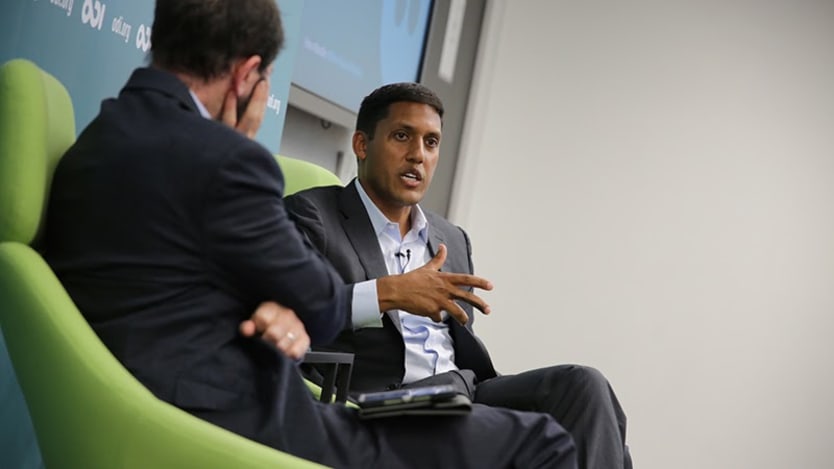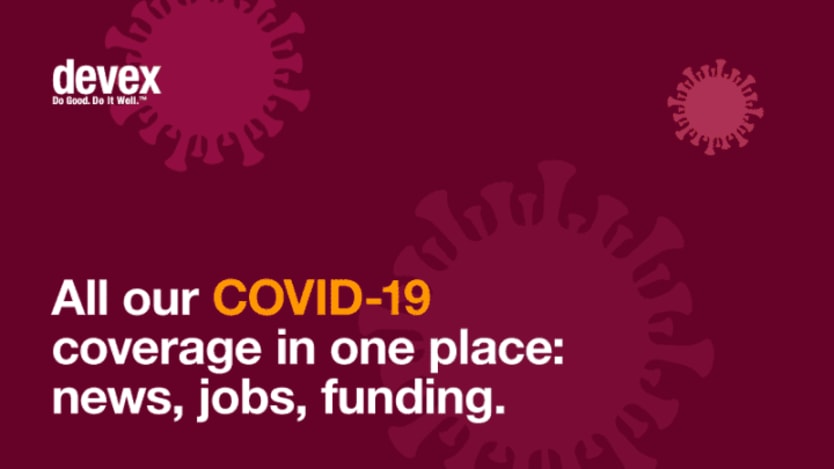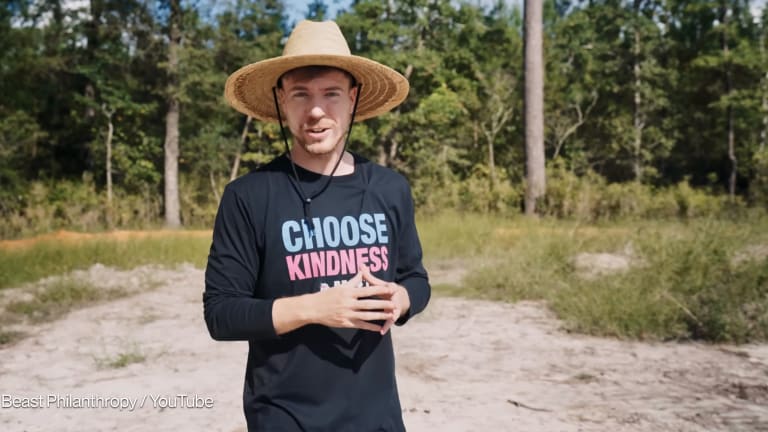
NEW YORK — The Rockefeller Foundation recently committed $15 million to a national action plan for COVID-19 in the U.S. in an effort to dramatically scale testing and contact tracing.
The response signals a “repositioning” of the organization’s work, according to Raj Shah, president at The Rockefeller Foundation. Its focus is now centered on the biggest areas of investment in health, food, and economic opportunity, he said.
What skills are needed for the COVID-19 response?
Devex talks to three organizations currently hiring for the COVID-19 response about what kind of experience is most in-demand and the possibilities of working remotely.
“The Rockefeller Foundation has decided that we will do everything we can, particularly to bring people together — across science and industry, across the right and the left of the political spectrum, across policymakers and private sector and civil society leaders — to make a difference in the lives of vulnerable people and children and families at home and around the world,” Shah said.
Devex spoke with Shah about The Rockefeller Foundation’s response to COVID-19 and whether the pandemic is altering the role of philanthropy.
“Our overall belief is that that'll cost America $100 billion dollars, but if you put that in the context of what we're looking at right now … That's going to add up very, very quickly.”
— Raj Shah, president, The Rockefeller FoundationThis interview has been edited for length and clarity.
It seems that Rockefeller is carrying out some work, like developing and funding a testing plan in the United States, that is typically the job of a national government. How do you see Rockefeller and other foundations filling that space typically reserved for government?
Rockefeller has been in the field of public health since its inception. It is natural and appropriate that we are well-positioned to bring together people from different parts of society to have a data-driven, evidence-based response to COVID. What we recognized many weeks ago was that the only way we could manage through this crisis was going to be with really widespread and ubiquitous access to diagnostic testing.
We backed up that proposal by bringing together leaders — and, I want to just emphasize, including former administration officials of key parts of government from both the Republican and Democratic administrations of the past — to say, “What are the practical actionable ways to scale up testing in America?”
The reality is we've been stuck at about 1 million tests per week for the last several weeks, and it's not showing signs of going up fast enough. We introduced this 1-3-30 Action Plan, which involves going from 1 million tests to 3 million tests per week, in eight weeks, and then to 30 million tests per week, in six months. We identified a set of actionable investments that would get us there.
Our overall belief is that that'll cost America $100 billion dollars, but if you put that in the context of what we're looking at right now, which is the economic loss of $300- $400 billion a month, because of the lockdown. That's going to add up very, very quickly, and a $100 billion dollar investment is quite worthwhile.
Can you describe some of the bottlenecks you are seeing in the U.S. in executing a response, and how similar these bottlenecks are in low- and middle-income countries?
In the United States, we see very clear bottlenecks and believe we can overcome them by working together and being results-oriented. For example, two-thirds of the molecular testing capacity in America sits in research labs and university labs that are not part of the CDC diagnostic surveillance network.
COVID-19 — a timeline of the coronavirus outbreak
Follow the latest developments on the new coronavirus that causes COVID-19.
Those labs typically are not being maximized in terms of their processing capacity. If we identify those labs, connect them all to a central IT infrastructure, give them the tools to report on results rapidly, you could very quickly scale up processing in America to reach the 3 million tests per week target. That's a very actionable item.
I believe the COVID crisis is going to be extraordinarily challenging in developing countries, many of which do not have the capacity to implement the types of social distancing that we know can bend the curve. They certainly don't have the capacity to do that social distancing in low-income populations within those countries.
So when I think back to 20, 30, 40 years of progress in reducing human vulnerability and extreme poverty around the world, I have a great fear that this pandemic will live through those very communities, place them in a highly fragile place and then undermine many decades of economic growth and successful development efforts that have helped move them out of poverty.
“What philanthropy can do is identify solutions when others are not doing so ... or bringing together different parts of society to create plans and programs and innovations that others can follow.”
—How much of the foundation’s U.S. strategy could be replicated in lower- and middle-income countries if they don't have access to the same kind of funding and institutional support?
Well, ironically, I think it's even more important to have. In places where you do not have the ability to use blanket social distancing efforts, it will be more critical to have a data-driven approach that allows for understanding who's positive and being very specific about having them either self-isolate or identify who they've been in contact with, and get those individuals tested.
In my view, in countries with health systems that have a lower level of resources or in places where physical distancing is not as achievable, a massive massive effort around testing, contact tracing, and frankly, economic support, and job creation for people in those communities is going to be absolutely critical.
Looking beyond the pandemic, do you think this crisis could prompt philanthropic organizations to increase the scope of their work in the long-run, expanding more into traditional government work, for example?
Philanthropy can never replace government. We just don't have the scale or the mandate to do so. What philanthropy can do is identify solutions when others are not doing so, or when it's more involved with taking on unique risks, or bringing together different parts of society to create plans and programs and innovations that others can follow. I think that's what a number of us in terms of philanthropic leaders are doing right now.
Over the long term, I think COVID is going to dramatically change the way people perceive the connectivity and risks that we face together, and I think it's going to dramatically change the economic trajectory of 50 or 60 countries around the world that are going to be stuck in a longer-term global recession, or something worse.
Now more than ever, philanthropy needs to work together with business and government to offer a new vision of how the world can cooperate.
Visit our dedicated COVID-19 page for news, job opportunities, and funding insights.









